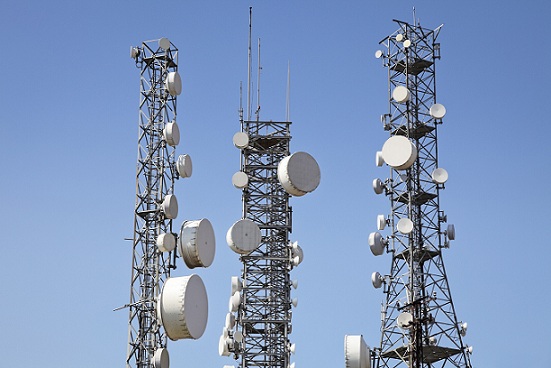Nigerians enthusiastically joined the rest of the world in the realm of modern telecommunication with the introduction of the Global System for Mobile Communication (GSM) on August 6, 2001. Many scrambled to own a line despite the high cost and limited reach.
However, in the last 20 years and considering the numerous feats recorded in the areas of simplifying communication through voice and messaging, as well as revolutionising business and economy, the GSM has become a must-go companion to many. Many Nigerians rely on it for social interactions also.
The telecom companies have, during this period, seen their fortunes rising and they expanded their services to the nooks and crannies of the country.
But of recent, and rather unfortunately, the recurring problem of poor service has remained a source of concern, and to a greater extent, dampening the morale of millions of Nigerians with little hope for a solution in the near future.
- Northern Nigeria’s struggle amid a seven-day blackout
- Criticism trails Ekiti lawmakers’ planned retreat to Canada
Subscribers across the country complain of drop calls, erratic connectivity and high tariffs, often resulting in loss of business opportunities and other social interactions.
The issue is so serious that customers have to dial a number multiple times to get through; while data connectivity has reached a point where online, such as streaming of short videos, WhatsApp messaging and calls, are increasingly becoming difficult.
In the face of these challenges facing the subscribers, service providers are on a daily basis calling for a tariff review to enable them to break even. The Nigerian Communications Commission (NCC), which is the regulator, deserves commendation for resisting this move, considering the economic crunch in the country.
The poor network was attributed to the lack of maintenance of the base stations across the country, but this is a fraction of multiple problems wreaking the sector.
Other issues include vandalism of infrastructure, multiple taxation and high cost of fuel and other consumables to keep the services going, which means for the business to be a win-win situation, the federal government must not look the other way. It must be seen to be playing the role of a big brother, by ensuring adequate security and also the enabling environment for the Telcos to thrive.
The Association of Licensed Telecommunications Operators of Nigeria (ALTON) recently appealed to federal and state governments to assist them in addressing the multiple problems being faced in the sector. The association’s chairman, Gbenga Adebayo, told newsmen in Lagos that challenges in telecommunications should not be left to the operators alone.
Adebayo said the operating environment was not conducive enough to maintain uninterrupted services, adding that the federal and state governments should synergise and come to their aid in solving the issues of multiple taxation and regulations affecting the growth of the industry.
He said no business would thrive in an environment where resources that could have been used in network upgrades were diverted to the repairs of damaged telecommunications infrastructure in violence-prone areas.
A report from the NCC painted a gloomy picture of the severity of these challenges. According to the report, the telecommunication industry spent approximately N14 billion between 2022 and 2023 to repair nearly 59,000 fibre cuts. The report noted that in 2022 alone, operators recorded an average of 40 daily incidents of fibre cuts, amounting to almost 1,000 cuts every month.
For example, MTN Nigeria suffered more than 6,000 cuts on its fibre cable between 2022 and 2023, resulting in an N11 billion loss of telecom infrastructure. Airtel alone experiences over 1,000 fibre cuts each month.
We, at the Daily Trust, believe that a more robust approach needs to be taken by all stakeholders to address the problems in view of the fact that the sector is critical to the socio-economic development of the country.
It is unfortunate that the services are daily deteriorating even in the face of increased data depletion and phone call drops being suffered by Nigerians.
We also believe that while the government has a role to play, the service providers hold the key to the improvement in the services. They need to invest more in modern technology and find ways to ease their operations. It is evident Nigeria holds one of the highest subscriber bases with 219 million subscribers in March 2024. This is a huge market waiting to be further exploited.
With the digitalisation of both government and other services, the potential for the sector is huge and investors stand to gain more when they put their houses in order.
An increase in tariff, though looks attractive, is not the way to go now. This is because the service providers may run the risk of losing customers if the rate becomes unaffordable.
Issues of multiple taxation, especially by states and local governments need to be addressed urgently. States must realise that allowing easy access to telecommunication services is an important factor in developing businesses, which will be good for the development of their states.
We also call on the NCC to ensure that Nigerians get value for money from all telecommunication service providers. It should not hesitate to wield the big stick on defaulters while ensuring that it facilitates the business environment for them to thrive.
We believe that if all stakeholders come together, the country will have a vibrant telecommunication sector with the potential to open up opportunities for millions of Nigerians.

 Join Daily Trust WhatsApp Community For Quick Access To News and Happenings Around You.
Join Daily Trust WhatsApp Community For Quick Access To News and Happenings Around You.


